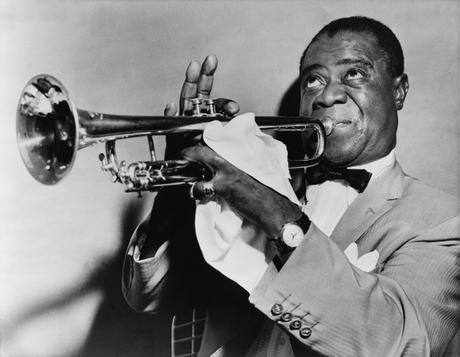
The roots of jazz can be found in blues, the folk music of African slaves in America and their descendants. In this music, the cultural and musical traditions of West Africa have been deeply influenced by the development of black musicians moving to cities.
Early jazz sounds were already discoverable at the turn of the century in popular music or dance ensembles (marching band music, dance band music). The instruments used to give the typical jazz sound: brass, whistles, and drums.
The inspiration for black musicians often derives from the melodies and structures from marching music. According to the study “North by South, from Charleston to Harlem” (National Endowment for Humanities) ” this type of music style, including also the rhythm and melody, tried to break out from the framework of European musical traditions, even though they used European instruments. This African-American feeling re-phrased the melodies and transformed the rhythms from the core that later emerged from the great black musicians.

Many black musicians in New Orleans earned their living playing in a band performing in funerals in accordance with the African American tradition. These African-born bands have actively participated in the popularization and distribution of early jazz. Traveling through the black communities in the south and visiting the northern cities, they were the pioneers who refined the tearful, harsh, free, ragtime sound of the music and created the more elegant, sophisticated strings.
Despite its ingenuity, with the modest, folk music roots of early jazz, it was primarily a product of self-trained musicians. After the Civil War, a network of organisations, schools and civic communities founded and operated by people with African origins was formed both in the North and South. With growing learning opportunities, young and skilled African-American musicians have been increasingly involved, many of whom have received classical European music education. This was a music-loving new wave of Lorenzo Tie and Scott Joplin. Joplin’s father was a slave before, but his mother was already born. Until the age of 11, he was learned to play on his own, until a German migrant skilled in classical music took him as an apprentice in Texarkana (Texas, USA).

Due to the racial segregation act of the 1890s Jim Crow, the talented, experienced African American musicians were excluded from existing bands. These musically-trained jazz guitarists played an important role in the transition and understanding of unwritten, improvised music. They also helped to maintain and to spread the established style, especially during the age of the great orchestras.
Advertisements
